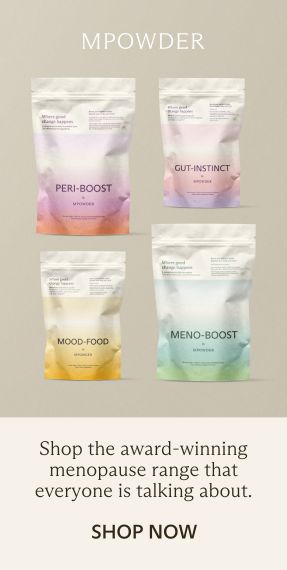Around 60% of us experience menopause tiredness as part of our midlife journeys—and that low-energy slump can affect everything from focus and mood to confidence and productivity. This guide dives into science-backed, empowering strategies to boost energy, reduce fatigue, and manage menopause tiredness—and shines a spotlight on our hormone-balancing range designed to support your body at every stage.
What Causes Menopause Tiredness?
We now know that the hormonal rollercoaster of midlife can disrupt:
- Sleep quality (hello, night sweats and a racing 3am mind)
- Energy production at a cellular level
- Mood stability
- Cortisol and stress management
These often combine to leave us fragile, mentally foggy, and achingly tired. The good news? There is much we can do to take agency for our energy. The start point is adjusting your habits to reflect your lifestage.
Here are 3 empowering steps to power the recharge naturally
Step 1: Plan for a good night’s sleep across the day
-
Invite in radical rest: did you know that Yoga Nidra can calm our cortisol levels and nudge us into rest and digest in as little as 20 minutes? If your energy is slumping, take a break. Lie down. Work through a guided yoga nidra meditation. Time out rather than pushing on through can transform energy levels.
-
Prioritise sleep quality: the sleep hygiene advice is worth adhering to - but we need more in midlife. Focus on reducing cortisol and preparing your mind for rest too; consider introducing lemon balm as a tea to sip before bed or invest in a magnesium spray and apply to the soles of your feet just before you get into bed.
-
Maintain consistent energy-boosting habits: Sleep scientists tell us we need to have expended energy to both feel energised and achieve rest. The key to incorporating movement in midlife is finding something you love. Don’t focus on calories or body shape, and instead look at exercise through the lens of how it makes you feel. What would you actively choose to make time for? That is where to find a movement routine that will stick.
Step 2: Supplement with MPOWDER’s Wholefood-led Formulas
-
Peri‑Boost: (for perimenopause): cacao, dragonhead, moringa, ginger, cinnamon, flaxseed, pea protein + vitamins/minerals to support energy, digestion, stress resilience, and hormonal balance.
-
Meno‑Boost: (for menopause): foundational layer for vitality—magnesium malate, maca, ashwagandha, B-vitamins, minerals like iron and zinc to support metabolism, adrenal function, and balanced energy.
- Mood‑Food: adaptogenic and stress-support nutrients—bacopa, turmeric, lemon balm, magnesium, B-vits—to help soothe brain fog, reduce cortisol-driven fatigue, and support emotional wellbeing.
Step 3: Focus on what you put on your plate
Food is medicine. Use it wisely.
Fuel your energy with intention—avoid sugar crashes by eating before your body demands a swift injection of energy. Combine protein + complex carbs + healthy fats every 3–4 hours to stabilise blood sugar and sustain energy.
Plan for failure - do you have a regular time you feel depleted? If so, ensure you have alternatives packed and to hand to nourish you the right way. We love to have a protein pot in the fridge for those nibbly moments! Make it easy to switch out the stuff that doesn’t nourish you well.
Integrating MPOWDER into your energy boosting routine.
Use Peri‑Boost or Meno‑Boost as your foundational morning ritual based on life stage.
Take Mood‑Food before lunch and let the adaptogens in this blend fuel your day and prepare you for rest
Keep an eye on your gut health too. If you’re tired and struggling to digest, introduce a single capsule of Gut Instinct around 30 minutes before you eat to replenish your gut microbiota.
Frequently Asked Questions
Q1: How quickly will I feel more energetic?
A: Many women notice improved energy and focus within 1–2 weeks when using MPOWDER blends and lifestyle support consistently.
Q2: Can I take Peri‑Boost and Meno‑Boost together?
A: No—each is a full-spectrum formula suited for specific stages. Choose one based on where you areNeed help? Our Health Concierge Team is here for you.
Q3: Will Mood‑Food really help with brain fog?
A: Research points to the potential of adaptogens in supporting cognitive function. And B‑vitamins, magnesium, and zinc support neurotransmitter balance, mental clarity, and reduced cortisol.
Q4: What if I’m still tired after 3 weeks?
A: Log symptoms using our free tracking service. If fatigue persists, discuss with your practitioner—ensuring underlying causes are ruled out.
Q5: Do I need all three products?
A: Start with Peri‑Boost or Meno‑Boost, then layer in Mood‑Food if stress or brain fog are also impacting you. Our Product Finder Quiz is a great place to begin!
Q6: Can lifestyle alone fix fatigue?
A: Lifestyle changes are powerful—and combining them with MPOWDER’s botanical blends ramps support to cellular level. Together, you’re setting the stage for sustainable energy and wellbeing.
Remember, always start with a conversation with your medical practitioner.
Feeling tired can be normal in menopause—but persistent, overwhelming fatigue may signal other issues like thyroid, anaemia, or sleep disorders. Always take time to communicate openly with your medical professional before you introduce anything new into your routine. They can help disentangle menopause-fatigue from other underlying conditions so you can move forward with clarity and confidence.
Share Twitter Facebook Pinterest

